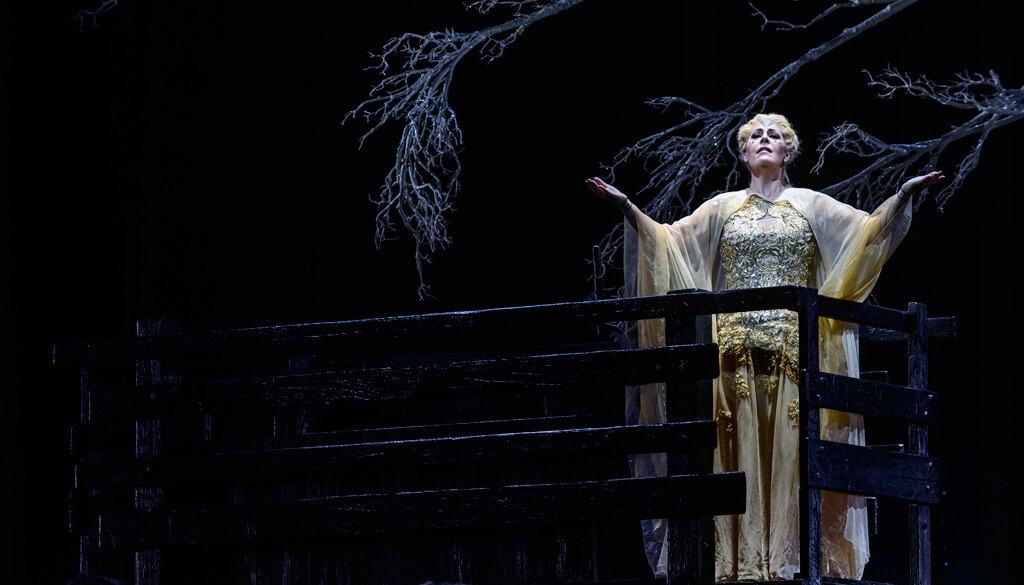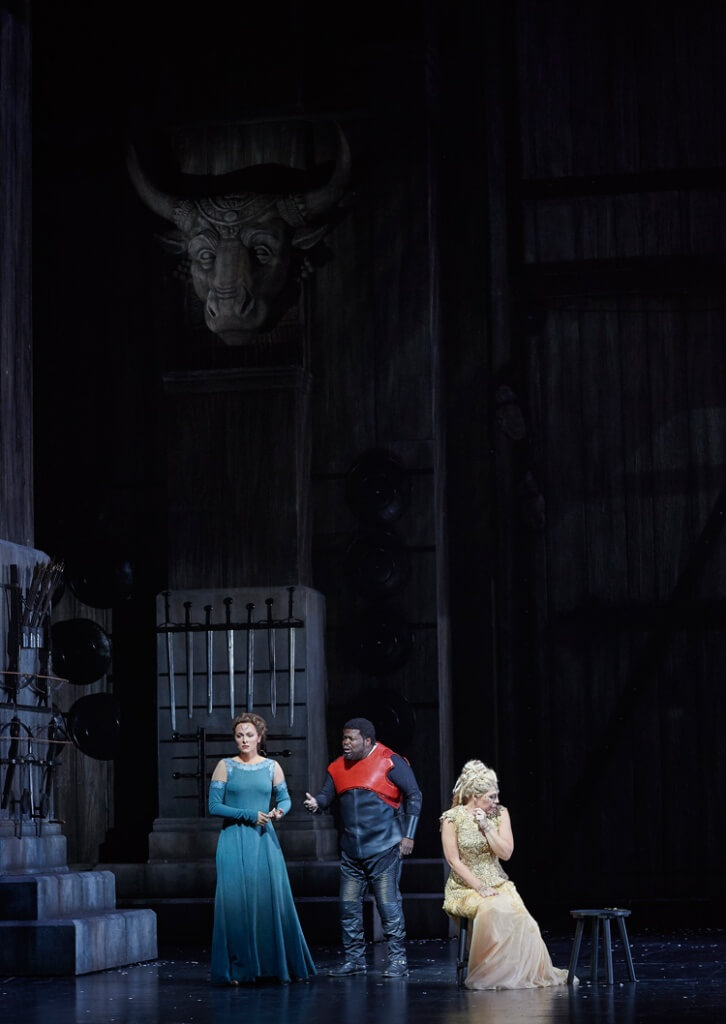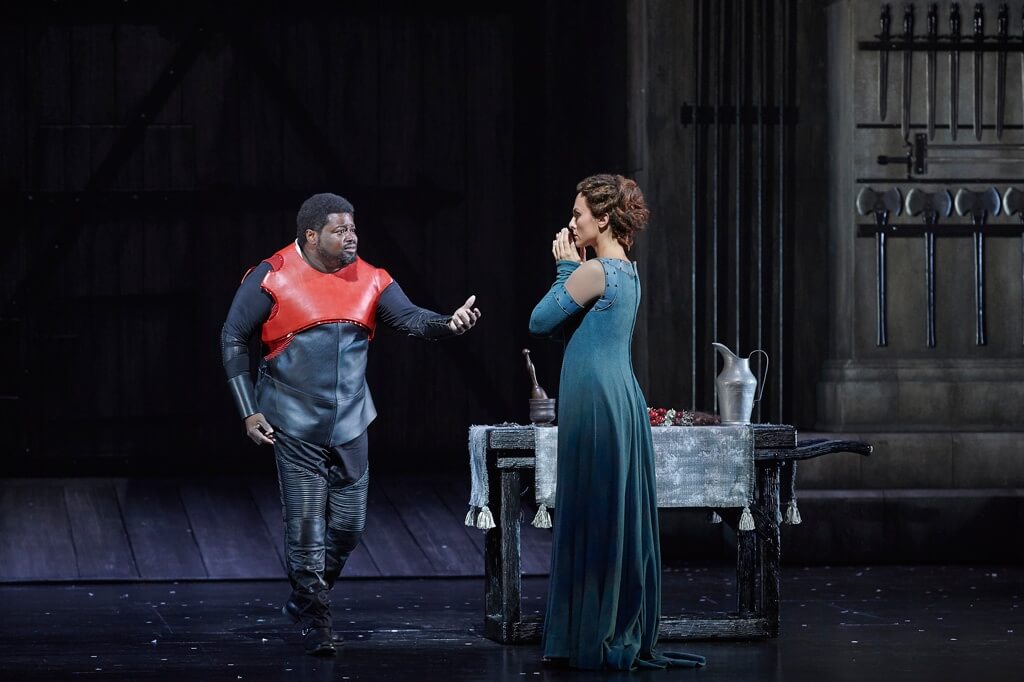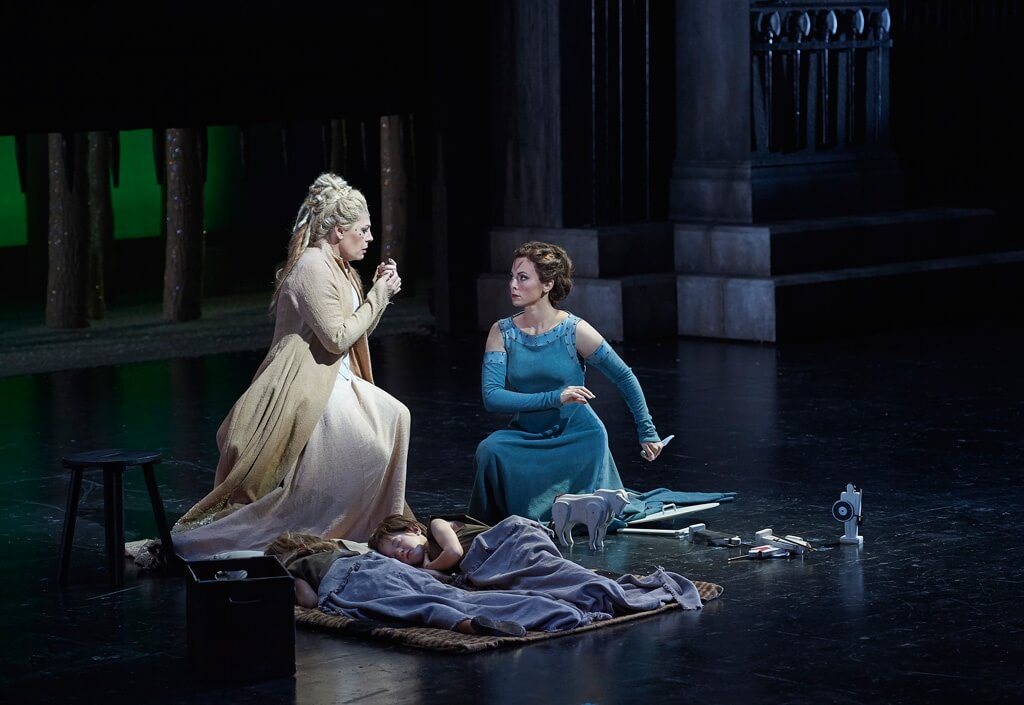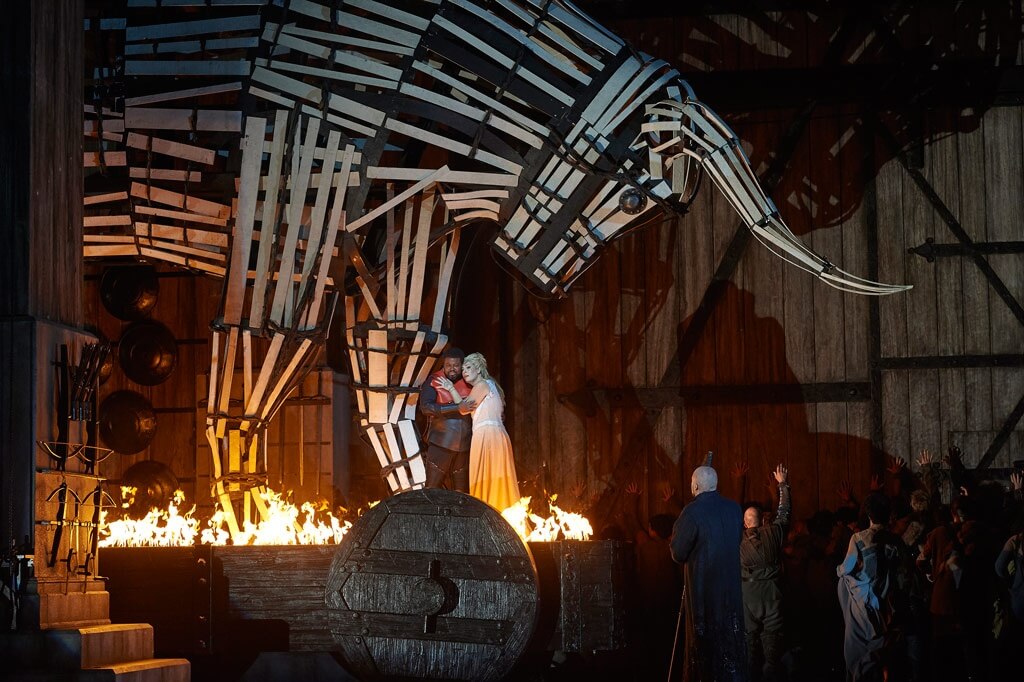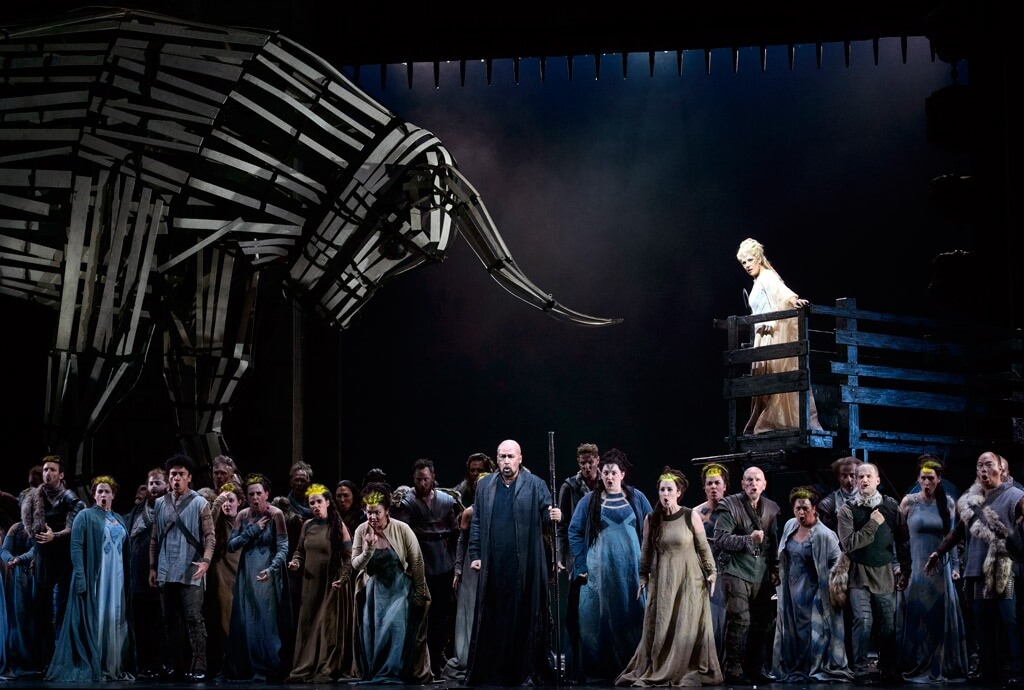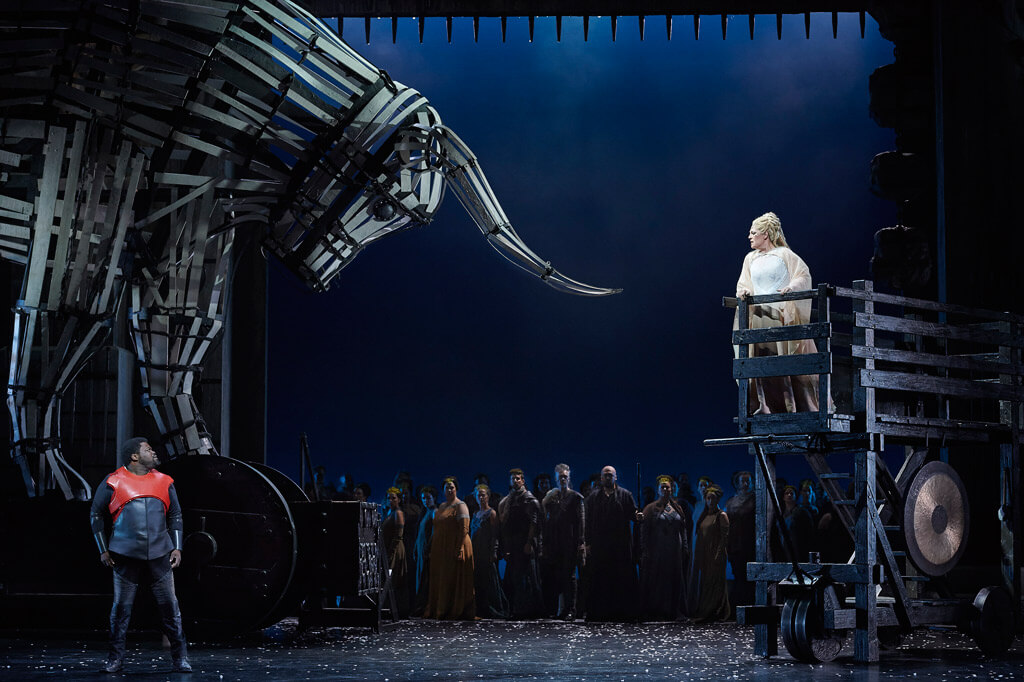
The Canadian Opera Company: Vincenzo Bellini’s Norma. Directed by Kevin Newbury. Conductor Stephen Lord. At the Four Seasons Centre. Runs until Nov. 5.
The most highly anticipated event of the Canadian Opera Company this fall is the production of Norma that opens the season. This opera was last staged by the COC back in the spring of 2006, in the Company’s last season at the Hummingbird Centre, starring American soprano June Anderson. The Bellini masterpiece is a bel canto gem that requires great voices to do it justice. While it was good in 2006, the COC has fielded a truly splendid cast this time around, led by soprano Sondra Radvanovsky in the title role (in the first four performances.) I’ll stick my neck out and call her the definitive Norma of our time, pace several other excellent singers with this role in their repertoire. Since taking on this taxing role in Oviedo in 2011, Radvanovsky has sung it at the Met, San Francisco, Barcelona, and Munich, all to uniform praise. It’s high time that the American-born Sondra Radvanovsky, who resides just outside the GTA and a newly minted Canadian citizen, gets to sing one of her most celebrated roles at home.
This production of Norma is a COC co-production with three other opera companies — San Francisco, Barcelona, and Chicago. Real Bellini enthusiasts, yours truly included, probably have already watched the commercial DVD filmed last year at the Gran Teatre del Liceu. But nothing beats the live experience in the opera house. For me, the appeal of Norma is the sublime vocal writing, with Bellini at his most inspired. The story, despite its inherent grandeur of goddesses and deities, is fundamentally a human love story, inhabited by people of flesh and blood. The role of Norma is incredibly challenging, a veritable Mount Everest of spinto-dramatic soprano roles, on par with Isolde, Brunnhilde and Aida.
It would not be an exaggeration to say the opening night audience witnessed a performance for the ages. Radvanovsky was in magnificent form. Right from the beginning, with the recitative before the beginning of “Casta diva”, the soprano offered up the most astonishing high pianissimos, sometimes held for what seemed like an eternity. We have not heard such technique since the era of the great Spanish diva Montserrat Caballe, whose voice I had the pleasure of hearing on several occasions. Radvanovsky’s ethereal high notes seemed to hang in the air. In the aria proper, her rock solid legato and long breath-line were stunning. The cabaletta that followed showed off her agility, not to mention her fortissimos with all the power and dramatic acuity one would want.
In the subsequent scenes when Norma discovers that her lover Pollione has betrayed her and seduced the young novice Adalgisa, Radvanovsky was dramatically convincing as a woman scorned, with a kaleidoscope of emotions ranging from rage, anger, jealousy, hatred, vengeance, bitterness, stoicism, motherly love, and finally resignation and a sense of peace. Through it all, the soprano offered up the most impeccable vocalism. It was an astoundingly accomplished performance.
Radvanovsky was joined by three superb principals. Isabel Leonard’s high mezzo with its unusually light timbre blended beautifully with the dark-hued soprano of Radvanovsky in “Mira o Norma.” Russell Thomas has a trumpet for a voice, and he was vocally a totally thrilling Pollione, a role much more suited to him than last season’s Don Jose. Oroveso is a relatively short role, and Russian bass Dmitry Ivashchenko made the most of his few moments to shine, singing with big volume and acting with the requisite gravitas. Former COC Ensemble soprano Aviva Fortunata was under-utilized as Clotilde, reduced to a few lines and bringing the children on and off stage. Tenor Charles Sy as Flavio had more of a chance to show off his warm tenor. The chorus is extremely important in Norma, and the COC chorus was very impressive. Stephen Lord conducted an idiomatic, singer-friendly performance, drawing a big if somewhat overly loud, sound from the orchestra. That said, I do like his well-judged tempi, and his willingness to allow the singers, especially Radvanovsky, the freedom to showcase her incredible technique.
If there’s a fly in the ointment, it was the stage direction of Kevin Newberry. From the opening scene onwards, there was a lack of dramatic urgency. This unit set is meant to depict the Druid’s armory, with the men preparing for war. The leisurely stroll by the chorus and supernumeraries in the opening scene was closer to what one would expect in Sunday in the Park with George! Using the same set to double as Norma’s dwelling is a little awkward, to say the least. Visually the large-scale columns and the wooden bull that comes on at the end were pleasing enough, but the blocking and the staging, in general, were too static and ultimately anti-dramatic. No matter — this was Sondra Radvanovsky’s show and she scored a total triumph. Seven more performances until November 5th at the Four Seasons Centre.
#LUDWIGVAN
Want more updates on Toronto-centric classical music news and review before anyone else finds out? Get our exclusive newsletter here and follow us on Facebook for all the latest.

